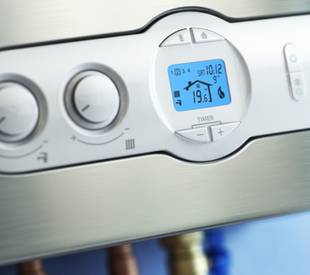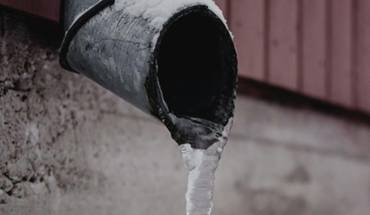When it comes to heating your home, choosing between gas and electric systems can be daunting.
Both options have their own set of advantages, drawbacks, and considerations.
Your choice can significantly impact your comfort, energy efficiency, and monthly utility bills.
In this blog, we'll explore the pros and cons of various electric solutions, as well as gas and central heating options. We’ll also delve into common issues, provide energy-saving tips, and help you decide which type of heating system is best for your home…
Understanding Gas Heating Systems
Gas heating systems are popular in many homes across the country. They typically operate by burning natural gas to produce heat, which is then distributed throughout the home most commonly via radiators in each room.
Why Choose Gas Heating?
Efficiency and Cost-Effectiveness
Gas heating is generally more efficient than electric heating. Natural gas burns hotter than electric elements, providing faster and more consistent warmth. Efficiency usually means lower costs.
Lower Operating Costs
Natural gas is generally cheaper than electricity on a per-unit basis, making gas heating more affordable over time. The initial installation may be higher, but the long-term savings can be substantial.
More Reliability
Gas heating systems tend to be reliable and durable, with a long lifespan. Even during power outages, some gas heaters can continue to operate, ensuring your home remains warm.
Drawbacks of Gas Heating
Installation Costs
As mentioned above, the initial cost of installing a gas heating system can be high, especially in a home without existing gas lines. This includes the cost of additional parts and any necessary infrastructure or structural changes to parts of your home that might be required.
Environmental Concerns
While natural gas is cleaner than some other fossil fuels, it still produces carbon dioxide when burned. This contributes to greenhouse gas emissions, making gas heating less environmentally friendly compared to some electric options.
Safety Risks
Gas heating systems pose certain safety risks, such as carbon monoxide leaks and potential explosions. Regular maintenance, such as yearly boiler servicing and the installation of carbon monoxide detectors are essential to mitigate these risks, as rare as they may be.
What About Electric Heating Systems?
Electric heating systems, as the name implies, use electricity to generate heat. This is typically done through resistance elements, heat pumps, or radiant heating panels. These systems are often found in regions with milder winters or in homes without access to natural gas.
Advantages of Electric Heating
Ease of Installation
Electric heating systems are generally easier and less expensive to install than gas systems. There’s no need for gas lines or venting, making electric heating a viable option for homes without existing gas infrastructure.
Lower Initial Costs
The upfront costs of purchasing and installing an electric heating system are typically lower than those of gas heating systems. This can be an attractive option for homeowners on a budget. But, as mentioned, operating costs can be higher in the long run.
Safety and Environmental Benefits
Electric heating systems eliminate the (generally low) risks associated with gas leaks and carbon monoxide poisoning. Additionally, when paired with renewable energy sources like solar or wind power, electric heating can be an environmentally friendly option with zero emissions.
Downsides of Electric Heating
Higher Operating Costs
Electricity is generally more expensive than natural gas. This means that, over time, the cost of running an electric heating system can be significantly higher than that of a gas system, particularly if used frequently.
Efficiency in Cold Weather
Electric heating systems, especially older or less efficient models, can struggle to maintain warmth in very cold weather. This can lead to higher energy consumption and increased costs during the winter months.
Power Dependency
Unlike some gas systems, electric heating systems are entirely dependent on the power grid. In the event of a power outage, your home will lose heat.
Common Issues and Maintenance
Both gas and electric heating systems require regular maintenance to operate efficiently and safely.
Dust and debris can accumulate on some of your equipment, such as radiators, reducing efficiency. Regular cleaning can help maintain performance.
Gas Heating Maintenance Requirements
- Annual Inspections: It’s highly recommended to schedule annual inspections by a qualified technician to check for leaks, test safety controls, and ensure the system is operating efficiently.
- Carbon Monoxide Detectors: You’ll need to install and regularly test carbon monoxide detectors to ensure they’re functioning properly.
Electric Heating Maintenance Requirements
- Check Wiring: You’ll need to periodically inspect the wiring and connections for signs of wear or damage, especially in older systems.
- Thermostat Calibration: You’ll also need to ensure your thermostat is correctly calibrated to avoid excessive energy consumption.

Heating Let You Down?
Fast gas and heating repairs for homes and businesses.
Call for Immediate HelpOther Electrical Heating Solutions
There is, of course, the option of combining an overall gas central heating system with additional electric appliances to boost your warmth. Perhaps you want to use an electric fireplace for zone heating, whilst you reduce your gas heating usage.
When it comes to equipment that requires professional installation, such as underfloor heating – our local electricians can offer advice on your best options and install what you need quickly and safely.
Electric Fire Heater Options
Electric fireplaces mimic traditional fireplaces but run on electricity. They provide both heat and an aesthetic appeal with a faux flame effect.
You can also buy freestanding portable versions that can be moved around for better up-close and personal heating. Alternatively, to save space, you can opt to install wall-mounted heaters.
Space Heaters
There are various types of space heaters, these are often portable and similar to fans (except they warm you up rather than cool you down).
Fan heaters use an electric coil and a fan to disperse the heat. Whereas ceramic heaters use ceramic plates heated by electricity and a fan to spread the warm air.
There are also infrared heaters, which use infrared rays to directly heat objects and people rather than the air, making them efficient for targeted heating. These can often be used outside (you’ve probably seen them at the pub) – so, they’re great for personal use if you have a garden social planned.
Underfloor Heating
Thin electric cables are installed under the floor surface, providing an even heat distribution across the room. An especially great option for bathrooms.
Baseboard Heaters
Resembling miniature radiators, these can be installed along the base of walls, you can also purchase portable versions with different models suiting different budgets. These heaters use electric resistance to generate heat.
Electric Towel Warmers
This has a more specific purpose than the general heating of your home, but towel warmers are great to install in the bathroom. These units not only warm towels (or clothing) but also provide supplemental heat to the room.
Each of these solutions has its own advantages depending on your space, budget, and heating requirements.
Energy-Saving Tips for Both Systems
Regardless of whether you choose gas or electric heating, there are several ways to improve energy efficiency and reduce costs…
Upgrade Your Thermostat
Installing a programmable or smart thermostat allows you to automate temperature settings, reducing energy use when you're asleep or away from home.
Improve Insulation
Proper insulation in walls, lofts, and floors can significantly reduce heat loss, allowing your heating system to work less hard and consume less energy.
Seal Gaps and Cracks
Seal any gaps around windows, doors, and other openings to prevent drafts and retain heat within your home.
Use Zone Heating
If needed, use zone heating to focus on heating the areas of your home that are in use. This can be especially effective with the electric heating appliances mentioned above.
Regular Maintenance
Keeping your heating system well-maintained ensures it operates at peak efficiency, reducing energy consumption and extending its lifespan.
Choosing the Right System for Your Home
When deciding between gas and electric heating, consider the following factors:
Climate
In colder climates, gas heating may be more efficient and cost-effective. In milder climates, electric heating could be sufficient and more environmentally friendly.
Initial vs. Long-Term Costs
Consider your budget for installation versus long-term operating costs. Gas systems typically have higher upfront costs but lower operating expenses, while electric systems are the opposite.
Environmental Impact
If lowering your carbon footprint is a priority, there are renewable energy systems available. However, these often come with higher initial installation costs and are less widely accessible than traditional alternatives. It's important to note that grant programs may be available to help offset these costs.
On the other hand, if affordability is a key factor, modern gas central heating systems and boilers have significantly improved and are now much more energy-efficient.
Home Infrastructure
Evaluate your home’s existing infrastructure. If your home already has gas lines and ducts, upgrading or maintaining a gas system could be more straightforward and cost-effective.
For homes and buildings without gas access, electric heating might be more practical.
Personal Preferences
Consider your preferences regarding maintenance, safety, and system reliability. Gas systems require more frequent professional maintenance, while electric systems are generally simpler but can be more expensive to operate.
Let Able Assist With Your Heating Solution
Ultimately, the choice between gas and electric heating depends on your specific needs, preferences, and circumstances.
Whether you choose gas or electric, regular maintenance and mindful energy use will help you get the most out of your heating system.
For help with gas, heating, electrics and more – simply give us a call on 0330 108 4111 and we can help.





